News
+ more news
2017 Call for SCOR Working Group Proposals
Monday, 20 February 2017
The Scientific Committee on Oceanic Research (SCOR) is accepting proposals for 2017 SCOR Working Groups from now until 15 April 2017. SCOR will approve new working groups at its annual meeting, this year held in Cape Town, South Africa on 4-6 September 2017. Details about the meeting will be posted on the meeting web site as they become available.
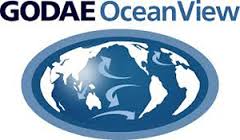
A GODAE OceanView International School "New Frontiers in Operational Oceanography" – applications open
Thursday, 02 February 2017
We would like to let you know that applications are now open for the Global Ocean Data Assimilation Experiment (GODAE) OceanView International School "New Frontiers in Operational Oceanography", which will be held on 2-13 October 2017, in Mallorca, Spain. The international school for observing, assimilating and forecasting the ocean is a two week program offered to early career scientists, professionals and students on the current state of the art in operational oceanography and related advances in the ocean sciences. The courses will include topics covering the leading edge science in ocean observing systems, as well as the latest methods and techniques for analysis, data assimilation and ocean modeling.
Deadline for applying is February 28, 2017.

EU AtlantOS project newsletter 2016 published
Wednesday, 01 February 2017
We would like to inform you that the EU Horizon 2020 AtlantOS (Optimising and Enhancing the Integrated Atlantic Ocean Observing System) project newsletter 2016 is now published and available for download HERE.
This first project newsletter introduces the vision of AtlantOS to the wider community interested in the Atlantic Ocean and the societal benefit that is enabled by sustained ocean observation. The biogeochemical observing community might find particularly interesting the article on 'Observing System Simulation Experiments (OSSE's) in AtlantOS' where the biogeochemical focus is set on a number of variables: nutrients, oxygen, and pH observations; the article on 'Setting Observing Targets for Biogeochemical Observing System in the Atlantic' workshop; or the article on 'The vision for technology for the Atlantic'.

Help Build Capacity for Ocean Science in Developing Countries – 2017 SCOR Visiting Scholars Program
Wednesday, 04 January 2017
The Scientific Committee on Oceanic Research (SCOR) began its Visiting Scholars Program in 2009. The purpose of this program is to send scientists to teach and mentor in developing countries to help build capacity for ocean science in these countries. So far, 19 Visiting Scholars have been sent to Africa, Asia, and Latin America. Since 2010, three Visiting Scholars have been selected each year. Thirty applications were received for the 2017 class of Visiting Scholars. SCOR is seeking additional funding for 2017 to increase the number of Visiting Scholars to at least 5. A crowdfunding campaign has been set up at https://www.razoo.com/us/story/Wclndf.
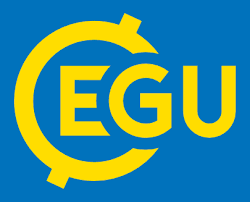
2017 EGU General Assembly sessions relevant to marine biogeochemistry
Wednesday, 14 December 2016
In response to amounting requests to highlight specific sessions at the upcoming 2017 EGU General Assembly, 23-28 April, Vienna, Austria, we provide a subjectively selected list of sessions relevant for the marine biogeochemistry community. You can access the list through the link HERE. If you're interested in adding a session to this list, please send us an email.
Please remember that the abstract submission deadline is 11 January 2017.

Global Methane Budget published
Tuesday, 13 December 2016
On behalf of the Global Carbon Project, we are happy to inform you that a new Global Methane (CH4) Budget has just been published after years of preparation, networking, and synthesis work. The new assessment, published in Earth System Science Data, presents the global CH4 budget arising from both natural and human-induced emissions, and how CH4 is destroyed in the atmosphere by chemical reactions and soil uptake.
You can access the relevant papers, figures and data from HERE. See also an interactive CH4 source emission visualization at this SITE.
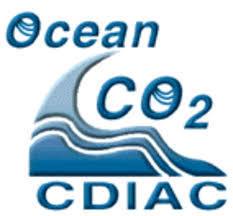
Announcement of Carbon Dioxide Information Analysis Center (CDIAC) transition
Thursday, 08 December 2016
We would like to announce that the data management activities for the ocean component of the Carbon Dioxide Information Analysis Center (CDIAC-Oceans) at Oak Ridge National Laboratory (ORNL) in the US have recently stopped.
Please see the ![]() attached letter which provides information on steps being taken to minimize the impact of this stoppage on the oceanographic community. If you have any questions, please contact Kathy Tedesco at This email address is being protected from spambots. You need JavaScript enabled to view it.
attached letter which provides information on steps being taken to minimize the impact of this stoppage on the oceanographic community. If you have any questions, please contact Kathy Tedesco at This email address is being protected from spambots. You need JavaScript enabled to view it.

Setting Observing Targets for Biogeochemical Observing System in the Atlantic
Tuesday, 06 December 2016
In the context of the EU AtlantOS Project, IOCCP started it's work towards defining quantifiable targets for the biogeochemical observing system. As with development of Essential Ocean Variables we hope for a wide community input over time. The first step of this effort is to focus on the Atlanic Ocean before expanding the process to other basins.
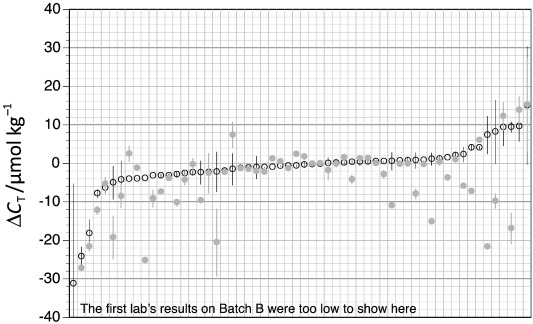
Second inter-laboratory comparison of sea water carbon dioxide measurements
Monday, 05 December 2016
A second inter-laboratory comparison of seawater CO2 measurements is planned for the second quarter of 2017. The goal of this comparison is to assess the present quality of seawater CO2 measurements for total alkalinity, total dissolved inorganic carbon, and pH. We encourage all laboratories to participate, whether they participated in 2013 or not.

SOCAT version 5 data submission closes on 15 January 2017
Friday, 25 November 2016
On behalf of the Surface Ocean CO2 Atlas (SOCAT) Team, we would like to remind you that submission of data for SOCAT version 5 ends 15 January 2017, and that Quality control for version 5 ends 31 March 2017.
The IOCCP promotes the development of a global network of ocean carbon observations for research through technical coordination and communication services, international agreements on standards and methods, and advocacy and links to the global observing systems. The IOCCP is co-sponsored by the Scientific Committee on Oceanic Research and the Intergovernmental Oceanographic Commission of UNESCO. Read more…
Calendar
|
|
IOCCP meetings, IOCCP-related meetings as well as events related to a wider scope in marine biogeochemistry. |



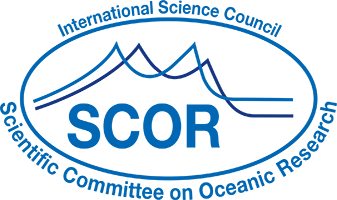

 Please wait...
Please wait...